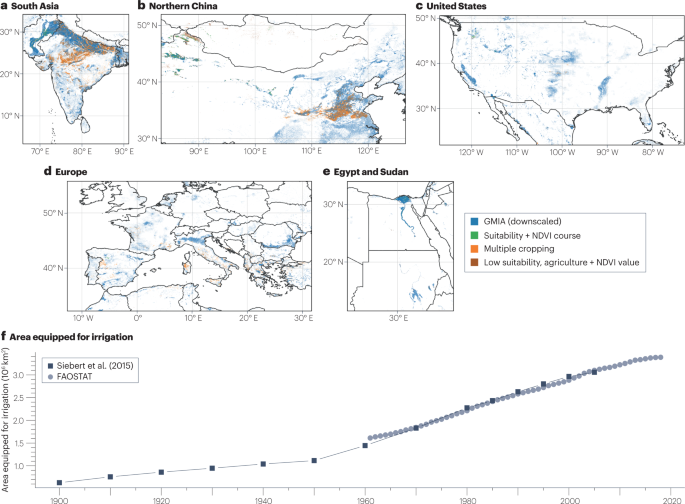2023-06-20 ニューヨーク大学 (NYU)
◆灌漑は世界の水使用量の90%を占めるだけでなく、地球の気候と環境にも重要な影響を及ぼしています。これにより水源が減少し、農業の排水が水質汚染につながるなどの問題も発生しています。研究チームは、灌漑の影響を改善するために、モデリング方法の見直しと不確実性の削減が必要であると提案しています。この研究は、将来の持続可能な水利用と食糧生産を実現するために、より包括的な評価が必要であることを示唆しています。
<関連情報>
- https://www.nyu.edu/about/news-publications/news/2023/june/new-study-reveals-irrigation-s-mixed-effects-around-the-world.html
- https://www.nature.com/articles/s43017-023-00438-5
地球システムにおける灌漑 Irrigation in the Earth system
Sonali McDermid,Mallika Nocco,Patricia Lawston-Parker,Jessica Keune,Yadu Pokhrel,Meha Jain,Jonas Jägermeyr,Luca Brocca,Christian Massari,Andrew D. Jones,Pouya Vahmani,Wim Thiery,Yi Yao,Andrew Bell,Liang Chen,Wouter Dorigo,Naota Hanasaki,Scott Jasechko,Min-Hui Lo,Rezaul Mahmood,Vimal Mishra,Nathaniel D. Mueller,Dev Niyogi,Sam S. Rabin,Lindsey Sloat,Yoshihide Wada,Luca Zappa,Fei Chen,Benjamin I. Cook,Hyungjun Kim,Danica Lombardozzi,Jan Polcher,Dongryeol Ryu,Joe Santanello,Yusuke Satoh,Sonia Seneviratne,Deepti Singh & Tokuta Yokohata
Nature Reviews Earth & Environment Published:20 June 2023
DOIhttps://doi.org/10.1038/s43017-023-00438-5

Abstract
Irrigation accounts for ~70% of global freshwater withdrawals and ~90% of consumptive water use, driving myriad Earth system impacts. In this Review, we summarize how irrigation currently impacts key components of the Earth system. Estimates suggest that more than 3.6 million km2 of currently irrigated land, with hot spots in the intensively cultivated US High Plains, California Central Valley, Indo-Gangetic Basin and northern China. Process-based models estimate that ~2,700 ± 540 km3 irrigation water is withdrawn globally each year, broadly consistent with country-reported values despite these estimates embedding substantial uncertainties. Expansive irrigation has modified surface energy balance and biogeochemical cycling. A shift from sensible to latent heat fluxes, and resulting land–atmosphere feedbacks, generally reduce regional growing season surface temperatures by ~1–3 °C. Irrigation can ameliorate temperature extremes in some regions, but conversely exacerbates moist heat stress. Modelled precipitation responses are more varied, with some intensive cropping regions exhibiting suppressed local precipitation but enhanced precipitation downstream owing to atmospheric circulation interactions. Additionally, irrigation could enhance cropland carbon uptake; however, it can also contribute to elevated methane fluxes in rice systems and mobilize nitrogen loading to groundwater. Cross-disciplinary, integrative research efforts can help advance understanding of these irrigation–Earth system interactions, and identify and reduce uncertainties, biases and limitations.



